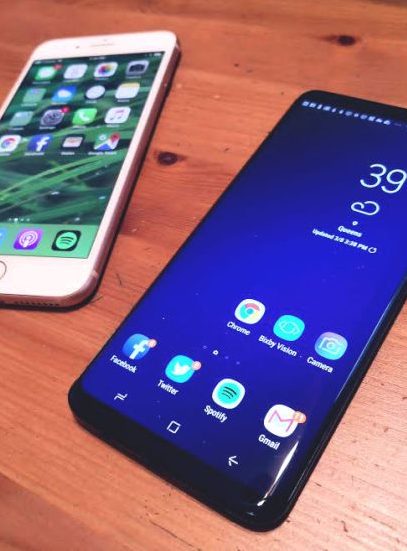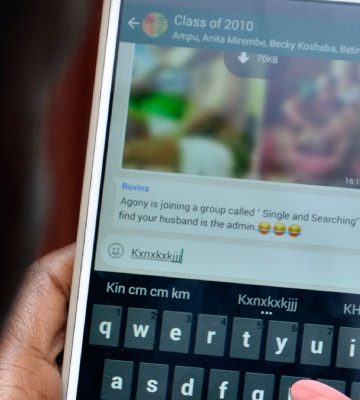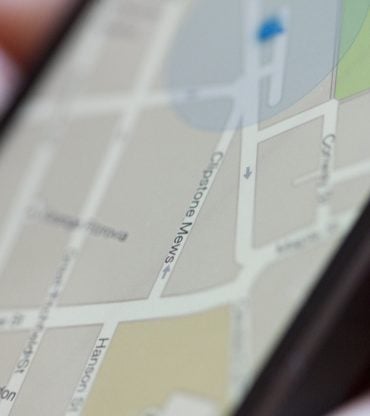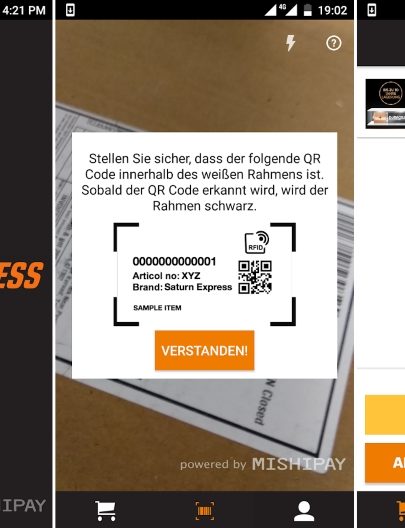Find out the week’s top mobile stories from around the world.
This week.. China and India lead the charge for big-ticket mobile shopping in Asia, Netflix exploring vertical video to entice viewers on mobile, Android beats iOS in smartphone loyalty, will Brexit bring the return of mobile roaming charges and much more.

China and India lead the charge for big-ticket mobile shopping in Asia
Enterprise Innovation
New research from Worldpay has shown that shoppers in emerging markets such as China and India are seeking a more luxurious, personalized shopping experience via their mobile devices. Furthermore, many shoppers in the Asia Pacific have also expressed a willingness to pay more for a product or service should the mobile channel provide a better shopping experience.
Worldpay’s research examined the viewpoints of 16,000 consumers across 10 global markets, including China, India, Japan and Australia in Asia Pacific, with a focus on their last mobile shopping experience and the factors contributing toward their decision to make a purchase via mobile.
The research showed 62% of Chinese consumers and 64% of Indian consumers are happy to pay more for an item, trip or service if the mobile user experience is better; far ahead of the global average of 41. Furthermore, 56% of consumers in India and 54% in China are more likely to shop on a mobile phone if sent a personalized push notification from a nearby store; far outweighing the global average of 35%.
Read more…
Netflix is exploring vertical video to entice viewers on mobile
Quartz
Netflix is exploring short, Snapchat-style vertical video on mobile, it announced Wednesday. The internet-TV company says the format is a more natural fit for phones and could help people discover new TV shows and movies faster.
The streaming-video giant is taking a page from rivals like Snapchatand Facebook by rolling out vertical TV and movie trailers in its mobile app. Netflix viewers will soon have a row of TV and movie previews to choose from amidst the title recommendations typically served up by the app. Users can tap on a title to watch the trailer, which will fill the vertical smartphone screen.
From within the video, viewers can swipe left or right to see other trailers, press play to watch the full movie or series, or add the title to their Netflix list. The full-length programs will remain in the horizontal format that’s standard for TV, and are better for extended viewing. The previews, like other content recommendations on Netflix, will be personalized to each user.
Read more…
Android beats iOS in smartphone loyalty, study finds
Tech Crunch
Samsung’s new Galaxy S9 may not quite live up to the iPhone X when it comes to Samsung’s implementation of a Face ID-style system or its odd take on AR emoji. But that’s not going to matter much to Samsung device owners — not only because the S9 is a good smartphone overall — but because Android users just aren’t switching to iPhone, at least not like they used to.. In fact, Android users have higher loyalty than iOS users do, according to a new report today from Consumer Intelligence Research Partners (CIRP).
The research firm found that Android brand loyalty has been remaining steadily high since early 2016, and remains at the highest levels ever seen.
Today, Android has a 91 percent loyalty rate, compared with 86 percent for iOS, measured as the percentage of U.S. customers who stayed with their operating system when they upgraded their phone in 2017.
Read more…
More Ugandans now own mobile phones
Daily Monitor
Almost 24.8m or 70.9 per cent of Ugandans own mobile phones, a report by the National Information Technology Authority Uganda (NITA-U), has revealed.
The report dubbed the National IT Survey 2017/2018, sampled 2,700 people among government ministries, departments, agencies, local governments and households across the country in 2017.
The Uganda Communications Commission (UCC) 2014 Access and Usage of Communication Services Across Uganda study showed 52.3 per cent of Ugandans owned mobile phones.
The 70.9 per cent figure by NITA-U shows progress since 2014, with the rural folk outpacing urban people in terms of growth.
Read more…
Mobile Ad Trojans Evolve to Maximize Profits
Info Security
Mobile advertising Trojans have begun to use monetization schemes involving paid SMS and WAP-billing services in order to preserve and increase profits.
Kaspersky Lab’s Mobile Malware Evolution 2017 found that while these Trojans, the top mobile malware threat from 2016, went into decline in 2017, the threat continued to aggressively spread. With root privileges, they have the capability to secretly install various applications or bombard an infected device with ads to make use of the smartphone impossible. In addition to having almost unlimited access, they are also extremely difficult to detect and remove.
Based on Kaspersky Lab observations, the decline in the overall number of mobile advertising Trojans exploiting super-user rights appears to have been triggered by an overall decrease in the number of mobile devices running older versions of Android, which are the main targets of these Trojans. Potentially exploited vulnerabilities are patched in newer versions.
Read more…
By 2025 internet penetration will increase by 130% in Sub-Saharan Africa
Techpoint
The population of global Internet users will hit 5.026 billion in the next 7 years, from 3.278 billion in 2017.
According to a recent report by GSMA, 61% of the world’s population will be connected to the internet by 2025, a 41.8% increase over that of 2017.
Of that figure, Sub-Saharan Africa’s internet population — which is currently at 211 million — is expected to contribute 495 million to this number which is a 130% growth. A 130% growth within 7 years is great but is still relatively small considering that the population of Sub-Saharan Africa — currently at 1.04 billion — is expected to reach 1.24 billion by 2025.
Read more…
MoviePass CEO proudly says the app tracks your location before and after movies
Tech Crunch
Everyone knew the MoviePass deal is too good to be true — and as is so often the case these days, it turns out you’re not the customer, you’re the product. And in this case they’re not even attempting to camouflage that. Mitch Lowe, the company’s CEO, told an audience at a Hollywood event that “we know all about you.”
Lowe was giving the keynote at the Entertainment Finance Forum; his talk was entitled “Data is the New Oil: How will MoviePass Monetize It?” Media Play News first reported his remarks.
“We get an enormous amount of information,” Lowe continued. “We watch how you drive from home to the movies. We watch where you go afterwards.”
Read more…
Saturn Opens ‘First’ Cashierless Store In Europe With Mishipay
Mobile Marketing Magazine
German multinational electronics retailer Saturn has teamed up with MishiPay, a mobile self-checkout platform, to introduce ‘Europe’s first’ cashierless store.
The Saturn Express pop-up store in Innsbruck, Austria at the Sillpark shopping centre is a pilot project for the technology. It gives shoppers the chance to purchase audio devices, games, accessories, and more without ever having to go through an in-store checkout process.
“The launch of Saturn Express is another solid step in our journey to revolutionise in-store,” said Mustafa Khanwala, CEO of MishiPay. “By launching Europe’s first cashierless store Saturn Express, MediaMarktSaturn, is leading by example for every retailer in the world. It’s a clear path forward to step-up their in-store journey by bringing the best of the online checkout experience to the physical store, using our Scan, Pay and Leave technology.
Read more…
Vietnam May Turn to Mobile Ad Blockers As Awareness Climbs
Exchange Wire
Adoption of ad blockers in Vietnam currently is low, but this may change as awareness of such tools grows.
Just 31% of consumers in the country said they used ad-blocking software, with 50% stating they were aware these tools existed, revealed a study by Decision Lab.
It noted that, while Vietnam’s adoption of ad blockers on desktops and laptops lagged behind more developed markets, the country was keeping better pace on mobile, where 14% of consumers used such tools on their mobile device. This put Vietnam closely on par with the UK, according to Decision Lab.
Across Asia, 90% of all mobile devices across Asia contained an ad blocker, it said.
Read more…
Will Brexit really bring the return of mobile roaming charges?
Computer Weekly
Although the issue of mobile roaming charges did not feature on the 23 June 2016 referendum ballot that saw the UK vote by a slim margin to leave the European Union (EU), the announcement by prime minister Theresa May that the UK will also be leaving the Digital Single Market has caused a sharp intake of breath among frequent travelers to mainland Europe.
And for good reason. Following years of back and forth around the various issues and stumbling blocks needed to make EU-wide consensus on abolishing mobile roaming charges a reality, the question was finally put to bed back in 2015, when Brussels committed to phase out roaming tariffs within a two-year timeframe.
Despite rumblings of discontent from some mobile network operators(MNOs), the fateful day – 15 June 2017 – came and went, and since then, Brits travelling in both the EU and the wider European Economic Area (EEA) – which includes Iceland, Liechtenstein and Norway – have been able to use voice and data services exactly the same as when in the UK in spite of the UK government having already triggered the Article 50 process.














